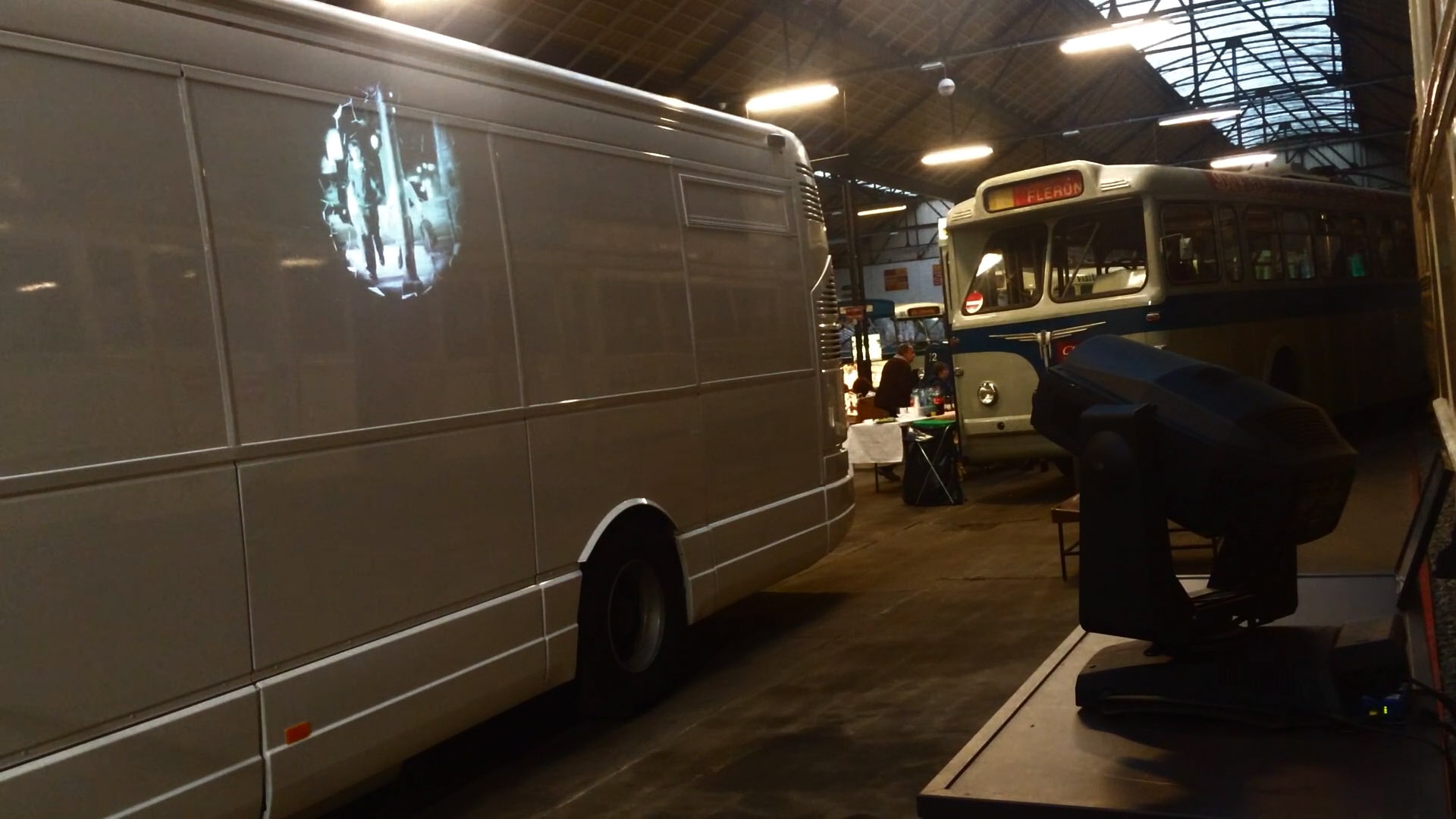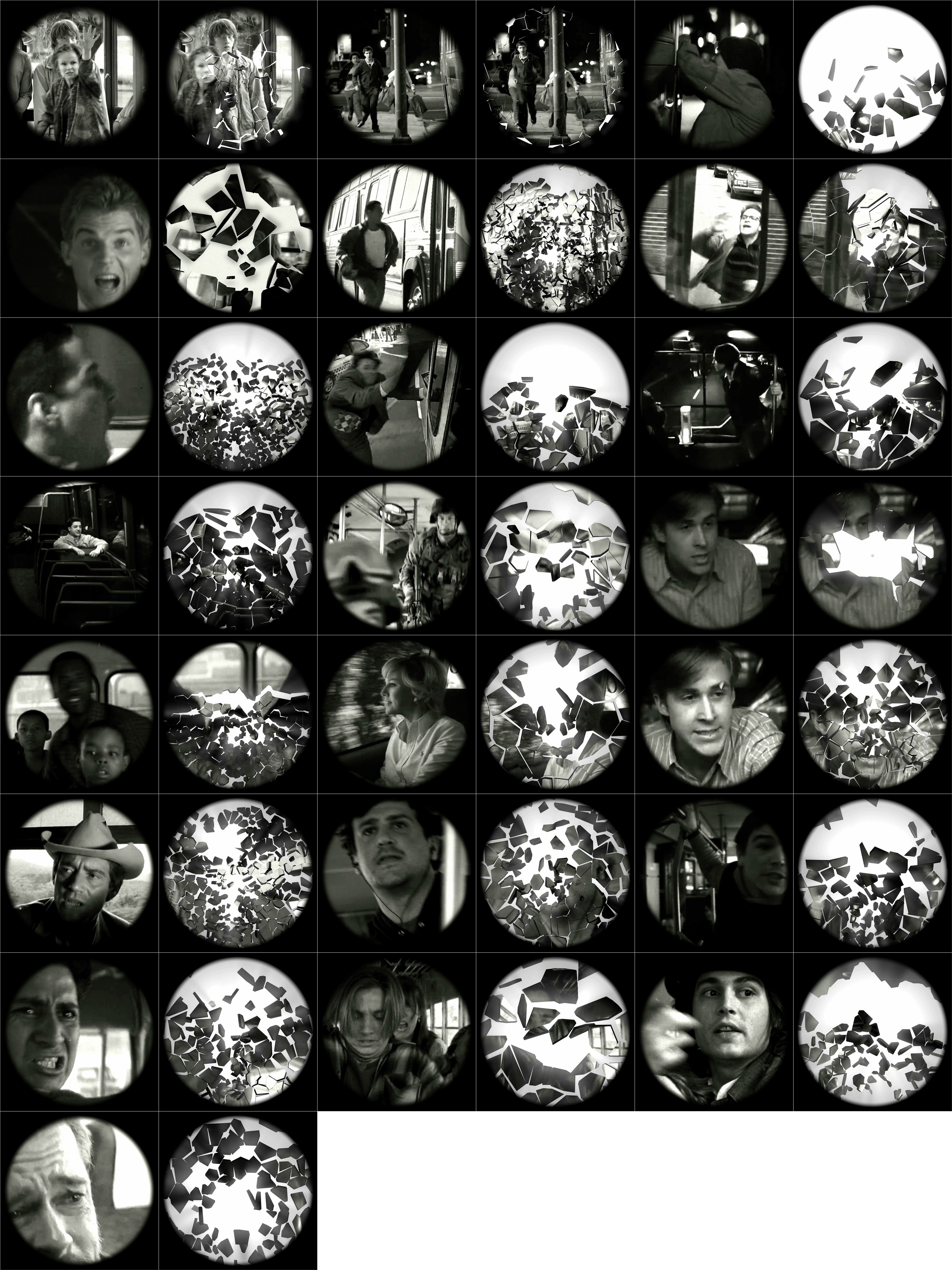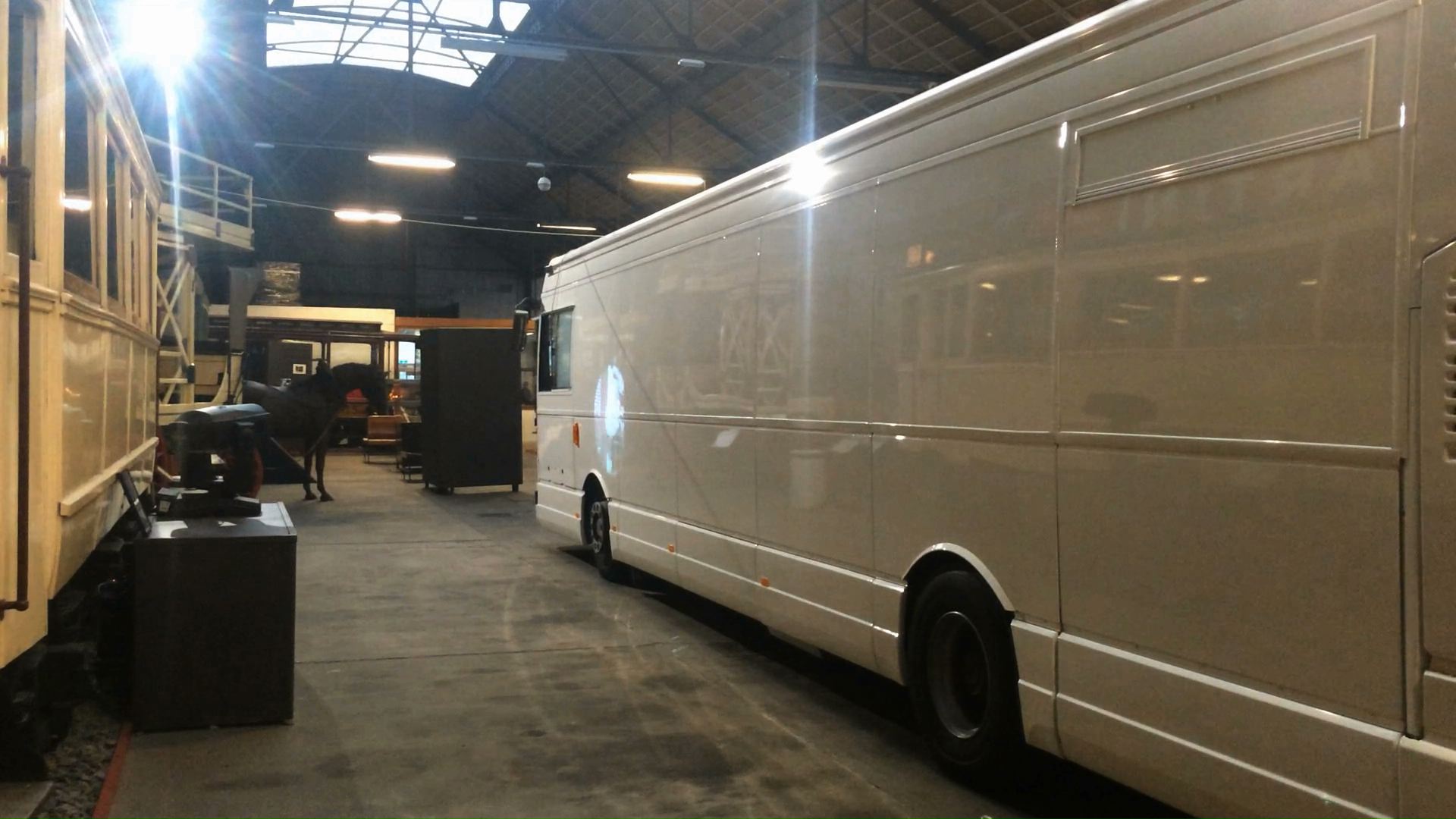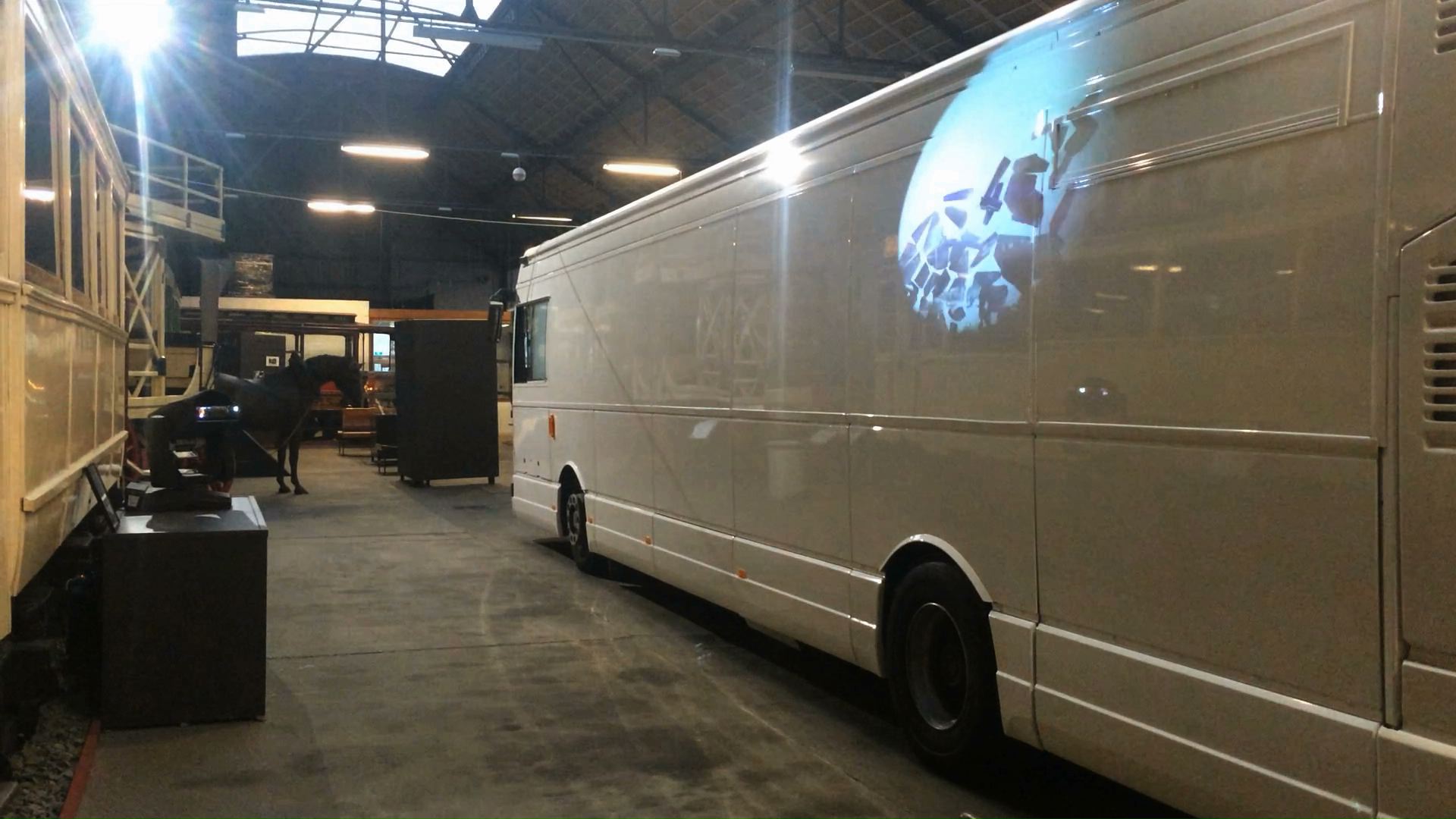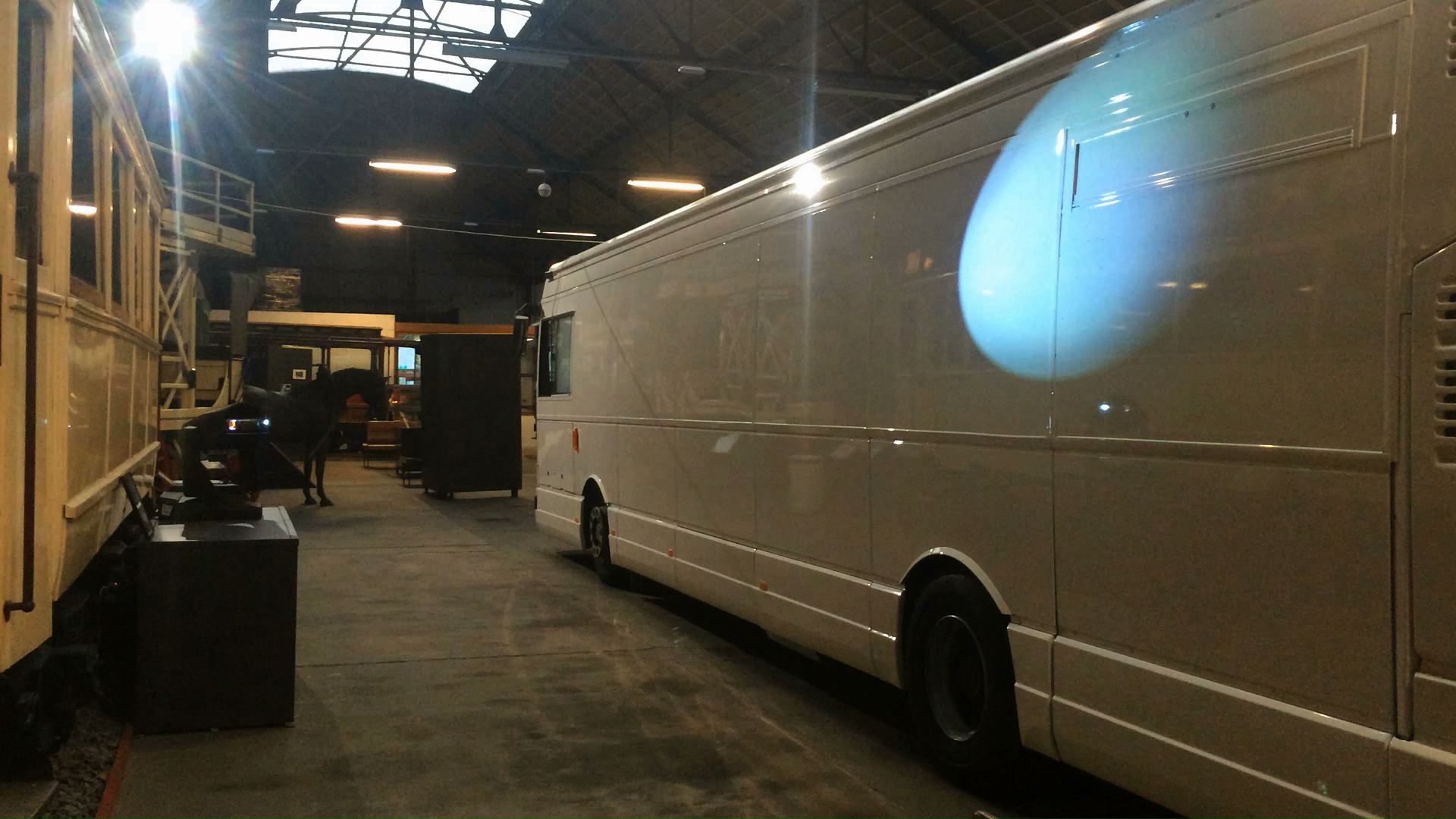Schadenfreude
"Schadenfreud"
1’ 45” loop Motorised video projection
Schadenfreude is the “bad joy,” the “unhealthy joy” or the “malicious joy” one feels when witnessing another’s misfortune. As the French equivalents show, rejoicing in someone else’s misfortune is considered a negative feeling and seems universally condemned (even by the one who experiences it). The German term (from Schaden and Freude) literally means “damage-joy” and can be translated as “joy at another’s misfortune.”
24 film excerpts containing the dialogue “stop the bus”: Driving Lessons / Superbad / My Sister’s Keeper / The Deaths of Ian Stone / Speed / Spider-Man / Speed / The Truman Show / Trojan War / Blast from the Past / Battle: Los Angeles / The Notebook / Hotel Rwanda / Diana / The Notebook / Under the Volcano / Jeff, Who Lives at Home / Line-Mozart / Speed / National Lampoon’s Senior Trip / Benny & Joon / Babel.
La Schadenfreude est la « mauvaise joie »1, la « joie malsaine » ou la « joie maligne », que l'on eprouve en observant le malheur d'autrui. Comme le montrent les termes francophones equivalent, se rejouir du malheur des autres est considere comme un sentiment mauvais et semble universellement condamne (meme par celui qui y participe). Le terme allemand (de Schaden et Freude) signifie litteralement « dommage-joie » et peut se traduire par « joie du malheur d'autrui ».
24 extraits de films dont le dialogue contient “stop the bus”:
Driving lessons / Super Bad / My sisters keeper / The deaths of Ian Stone / Speed / SpiderMan / Speed / The Truman Show / Trojan War / Blast from the Past / Battle Los Angeles / The notebook / Hotel Rwanda / Diana / The notebook / Under the volcano / Jeff, who lives at home / Line-Mozart / Speed / National lampoons senior trip / Benny and Joon / Babel.
